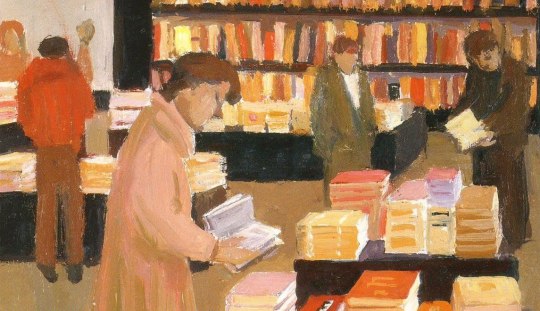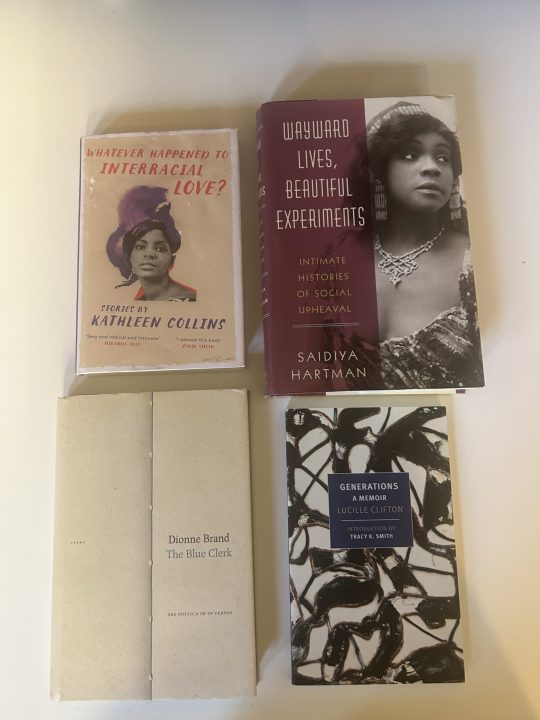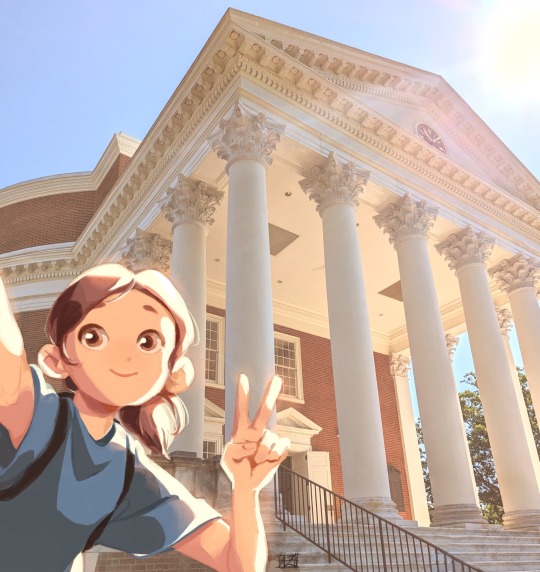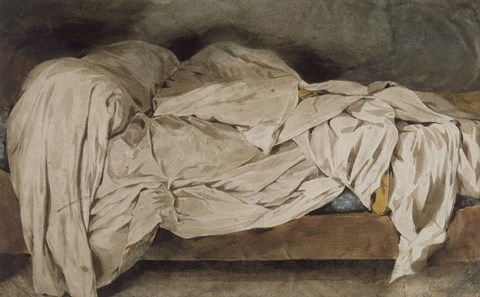#syllabi
Text
reading on reading
a literary syllabus [x]

how to read now by elaine castillo
a collection of essays by novelist and essayist elaine castillo about the politics and ethics of reading. castillo exposes the inherently colonial premises behind not only the works of many individual writers; but the way reading cultures analyze and canonize works, the tokenizing nature of the publishing industry that fails writers and readers of color, and the unfulfilled promises by bibliophiles and literary institutions to "build empathy" through reading diverse books.
"time in the codex" and "lastingness" by lisa robertson
two essays by poet lisa robertson from her prose collection nilling, both meditations on reading. “time in the codex” is an ode to the sensory and cognitive processes that reading evokes. “lastingness” explores the relationship between passivity and will when it comes to receiving the stories and ideas we read, using the work of hannah arendt to analyze texts by lucretius and pauline réage.
a history of reading by alberto manguel
alberto manguel (former director of argentina's national library) compiles a history of reading that encompasses the prehistory of books in ancient mesopotamia, the story of the library of alexandria and its influence in libraries that followed, literary societies such as the heian court, book thieves throughout time, book banning in multiple cultures, and the progression of text formats around the world from clay tablets to modern bookbinding.
selections from not to read by alejandro zambra (trans. megan mcdowell)
essays taken from the collection not to read by chilean writer alejandro zambra about the practice of reading, his own evolving reading life, and writing books; mixed with a variety of literary criticism. selections include "in praise of the photocopy," "against poets," "obligatory readings," "traveling with books," and "novels-- forget it."
"how do we read?", "the reading ape", and "inventing reading" by stanislas dahaene
three chapters from cognitive neuroscientist stainslas dahaene's book reading in the brain. "how do we read?" functionally breaks down how our brain understands written words. "the reading ape" imagines how our ability to read evolved by recycling preexisting neural circuits. "inventing reading" explores how languages themselves have formed over time to serve the way we think.
"when robots read books" by inderjeet mani
essay by computational linguist inderjeet mani on ways that artificial intelligence could enhance literary criticism by analyzing classic texts, particularly cumulative corpuses of works. examples of literary AI usage include finding similar character traits, archetypes, and tropes between different books and authors; quantitatively tracking literary trends; and generating timelines and maps of information pulled from narratives.
"uncritical reading" by michael warner
essay by english professor michael warner which attempts to define what "critical reading" actually is, the beginnings of a history of that practice, its alignment with agency and morality in academic culture, and what the qualities of "uncritical reading" (such as “identification, self-forgetfulness, reverie, sentimentality, enthusiasm, literalism, aversion, distraction") might offer us.
"someone reading a book is a sign of order in the world" by mary ruefle
essay adapted from a lecture in poet mary ruefle’s madness, rack, and honey that traces a reader's development through personal experiences in her own reading life. topics include rereading, what it means to read “the right book at the right time”, and the pleasure of finding imaginative connections between books.
3K notes
·
View notes
Note
Weird question, but are syllabi the private property of professors/college?
That is a weird question.
The answer seems to be that it depends on the university. At CUNY, where I work, I own my syllabi, it turns out.
Apparently, this is a matter of some controversy, because conservatives want syllabi at public universities to be considered public records so that they can submit requests for topics they would like to ban from being taught.
20 notes
·
View notes
Text
Y'all. I'm super excited about putting together my syllabi for the upcoming semester. Not HP related, just saying I'm PUMPED for what I'll be teaching my students.
For any of you college students/soon-to-be uni students out there, just know that some of us (many of us) who teach you are unabashedly enthusiastic about what we do and teach.
A behind-the-scenes look at what I think about when putting together a syllabus:
What do we need to cover?
What readings are most appropriate and why?
How much reading is too much for an undergrad? (I cap it at usually 50 pages a week.)
Does this all flow/make sense?
Will this be engaging? (Especially since my classes are required classes)
Does any of it matter outside the classroom? (If no, cut it)
And then the inner monologue:
why can't I assign them whole books every week?!! (because they would riot)
it's absurd I only have x amount of minutes to teach x, y, z topics.
I wish I could teach x topic for literally the whole semester
I can't wait to see their faces when they hear about y
can't find the right reading for this - guess I'll have to write a book about it someday (not unlike fanfic, if you can't find it, you have to DIY it!)
So, in short, I'm having fun (and this is why Cariad's update will happen tomorrow please forgive me)
#fuck my syllabus i gotta torture remus lupin#phd problems#college professor#uni professor#college#university#higher education#writing#my writing#academic writing#syllabus time#syllabi
17 notes
·
View notes
Link
The Liberation Libraries: are a project of the Faculty Women’s Interest group, or FWIG. Learn more about FWIG through the Association of Collegiate Schools of Planning (ACSP) website
2 notes
·
View notes
Text
Summer Online Course: Afrofuturism and Africanfuturism!
I don’t think I’ve ever put up the syllabus for my asynchronous online course on Afrofuturism and Africanfuturism, which was filmed and designed before COVID and is just really well put-together (if I do say so myself). In the first half we study US Afrofuturist texts like Get Out, “Dirty Computer,” Bloodchild and Other Stories, and Black Panther (film and comics); in the second half we study…
View On WordPress
3 notes
·
View notes
Text
Fucking Nice Threesome Cumshot Compilation
friend flash in public
Pierced Nipples And Huge Pussy Lips Russian Camgirl
Sex with aunty
Ariella Ferrera and Alix Lovell pussy licking fun
Three stunning anal loving dildo crazy latina sluts Sativa Rose, Kayla Marie and Britney Madison get fucked by Lee Stone
Sexy Sbbw Ms Ann aka Aunt Dee Getting Nasty with Dat Huge Soft Ass
Hot MILF Julia Ann Gets Demolished By Bodyguards
Hardcore teen gangbang xxx He could pulverize her all day long, so
cousins fucking and do not want to be seen
#adenectopic#expedientist#nosig#K.G.#palmister#heptarchy#Crenothrix#chromophobia#unrefitted#stadle#nacre#Hecatonchires#syllabi#Weisburgh#carriage's#shumac#golisopod#Bowring#uncalculated#tortillon
0 notes
Photo

Quiet: A Syllabus
“For most of my life, I took quiet to mean a kind of shortcoming.”
https://www.theparisreview.org/blog/2023/02/06/quiet-a-syllabus/
#Syllabi#blackness#interiority#kevin quashie#philosophy#quiet#syllabus#theory#Victoria Adukwei Bulley#The Paris Review
1 note
·
View note
Text

First (official) day of college!
super nervous haha, wish me luck
(no reposts!)
#my art#artists on tumblr#digital art#original art#guys. holy shit i'm in college#moved in a couple of days ago#i already found a group of Queer Friends!!!#never really had that before!!!#it feels very coming-of-age movie#but also i haven't had time to properly cry yet...#and i miss my cat :(#oh also what they do not tell you about college is the walking#so. much. walking#my legs are going to fall off#hm what else#i read some class syllabi today and freaked out#it's weird bc my mood swings go from happy to anxious to randomly TIME TO TEAR UP#ough i'd give a kingdom for the power of teleportation to bring me home for a bit#and also to just teleport to my classes haha pls my feet#in the wise words of a friend:#stay silly stay silly stay silly
186 notes
·
View notes
Text
It’s Convocation Week; classes begin 1/16. Already, a month before our 10-year accreditation visit, we have admin forcing Ceramics course syllabi through into our English course Canvas shells. On the up-side, I’m sure my students will be thrilled to know they need clay for class!
#academia#college#university#faculty#this is funny but also if this issue is not fixed by feb 26th and 27th and they randomly sample those syllabi from the system we lose marks
43 notes
·
View notes
Text
where the heart is
a domestic syllabus [x]

"lecture on the history of the house" by claire schwartz
poem by american poet claire schwartz, published in poetry magazine and her 2022 collection civil service.
"the house. from cellar to garret. the significance of the hut" by gaston bachelard
the opening chapter to bachelard's seminal work the poetics of space. bachelard theorizes that the house's role as a site of reverie lends it a profound influence on the psyche. coining his own term, topoanalysis, to explore this influence; he surveys different poetic images of houses as representations of mind and soul.
the bedroom: an intimate history by michelle perrot, trans. by lauren elkin
french historian michelle perrot's history of the western bedroom as the site of birth, sex, illness, and death; from the ancient greek kamára to the postmodern bedrooms of today. perrot traces developments in the bedrooms of royalty, families, laborers, women, children, recluses, monks, and travelers. see also "black in bed" by art historian ella ray on the legacy of black bed art and "the bedroom of things" by caitlin blanchfield and farzin lotfi-jam for a discussion of private space through digital images.
rooms by rohan mcdonald
animated short film by illustrator rohan mcdonald featuring interviews with participants about their rooms and homes.
never home alone: from microbes to millipedes, camel crickets, and honeybees, the natural history of where we live by rob dunn
book by biologist rob dunn about the nearly 200,000 other species that live in our homes, from welcome pets to reviled pests. dunn's work researching the ecosystems of houses has illuminated the sheer scope of creatures that thrive there, often unbeknownst to both inhabitants and scientists, as well as the benefits of a biodiverse household.
"human stains" by heather havrilesky
author and "ask polly" columnist heather havrilesky on the endlessness of housework and "the strange gift that laundry brings to our lives."
the midcentury kitchen: america's favorite room from workspace to dreamscape, 1940s-1970s by sarah archer
a visual history of american kitchens, using examples of advertising and deisgn photography to show the evolution of their aesthetics, technology, and cultural ideals. see also sarah archer's episode of you're wrong about on martha stewart.
"full spectrum" and "if these walls could talk, listen, and record" by emily anthes
excerpts from the great indoors by science journalist emily anthes, which investigates the intersections of health and design in indoor spaces. "full spectrum" (republished by next city as "everyone has a basic right to good design") follows an apartment complex designed for autistic adults. "if these walls could talk, listen, and record" (republished by slate as "senior care homes are becoming high-tech medical devices") reports on the promise and limitations of smart home technology for the elderly.
"inside out, or interior space" by rebecca solnit
essay from rebecca solnit's collection of work on place, the encyclopedia of trouble and spaciousness. solnit discusses the pursuit of the "dream home" through decoration and renovation, examining our desire to craft the perfect nest.
windowswap by sonali ranjit and vaishnav balasubramaniam
a collaborative online database of user-submitted videos shot from windows around the world. conceived as a way to "travel" during early phases of the covid-19 pandemic, visitors can shuffle through videos to experience the views from homes in a plethora of different environments.
#syllabi#this is another one that could have gone on and on!#cover image is unmade bed by eugene delacroix
682 notes
·
View notes
Text
we have arrived to HELL WEEK !!! physics exam, calc exam, chem exam, honor orch performance, + editor in chief interview all back to back until the day of fate plus </3
locking in so hard just so i can feel liberated and free at the concert oh lord my gpa must stand strong
also ap season is suddenly very real and imminently closer WE WILL GET THROUGH THIS FOR THE LOMLS 🙏🙏
#— it’s ash!#no because i planned this perfectly#when buying the concert tickets i cross referenced every course syllabi just to make sure nothings on the day after the concert#however#the math test is the day before 😭#and we might have the chem test on the day of 💀#we never catch a break…#i think my teacher is pushing back the test to the week after tho so WE PRAY#jake are you proud of me#The Physics AP Test Will Not Destroy My Will To Live 🕯️🔥
19 notes
·
View notes
Photo

#super paper mario#this is what happens when i have a work lull#oy#tomorrow i start building my syllabi for the coming semester#but tonight we shitpost!#luigi#mario#peach#bowser#count bleck#mimi#nastasia#o'chunks#tippi#luvbi#cragley#francis#goomba#dimentio
397 notes
·
View notes
Note
hii cianna I'd love to know if you'd recommend taking chem classes in college even though I won't be majoring/minoring in it? i used to love chem back in hs but I'm on a gap year so I'm scared that if I try chem at college level it'll be too hard!! (love u mwah)
YES absolutely!! like your ask actually made me so happy because i love people who foster a genuine appreciation for science/a curiosity to learn in general. who knows, you might try your hand at it in college and discover a passion you didn't know you had. or you'll try it and just find it's a subject you're interested in and keep it as a hobby on the side. either way is completely invaluable to me. and if you're not majoring in it, it would spice up your curriculum / expand your thinking skills in a different direction. that's why i love indulging in literary analysis. even though i'm a stem major, i just think it exercises a cognitive muscle that's otherwise left dormant.
what i do suggest is to pinpoint the class/professor/section you think you'd most likely be taking, look up the syllabus, and see what the topics are/what you can prepare yourself for in advance. i really love ak lectures (he's my daddy) and the organic chemistry tutor (also my daddy) bc they're really informative and can give even people who're not in the field a clear understanding of certain topics. cannot encourage this more!! chemistry is so fun and you don't need to be earning a degree in it to enjoy it <333
#incidentally looking up the syllabi for your classes before the semester begins is one of my fav things to do#i never walk into a class cold#ask
21 notes
·
View notes
Text
when i want to find new academic stuff to read i'll look up well-regarded college courses and try to track down their syllabi in the hopes that they'll have curated some interesting recommended readings. generally a lot easier than having to wade through one billion articles by my lonesome
#i'm shuffling through Tananarive Due's syllabi for her course on Black Horror rn#which led me to check out some other recommended readings from My Final Girl#hence my wailing about expensive horror reference books
20 notes
·
View notes
Text
pumping myself up to finish the final assignment due today like: girl you got this. Finish it in 2 hours and then you have free time WITHOUT the background guilt of constant procrastination awareness. Just think about it. FREE TIME to read, write, do your chores, and check up on the OUAT kids to see if they're okay (they're not, but it'd be nice to know how they're doing at the end of the season). GET IT DONE
#on an unrelated note the full syllabi for those grad school classes i'm taking have been released i AM SO EXCITED FOR THOSE#but we need to get through this undergrad class first loooool#on that note i personally think it's so silly that this 10% presentation requires SO much work. but moving on#(adventures in class)
29 notes
·
View notes
Text
fucking forgot to send in my teaching app for nextyear. oh my god life is just one big monster truck grinding me under its wheels and filling its grille with my mulched viscera
7 notes
·
View notes